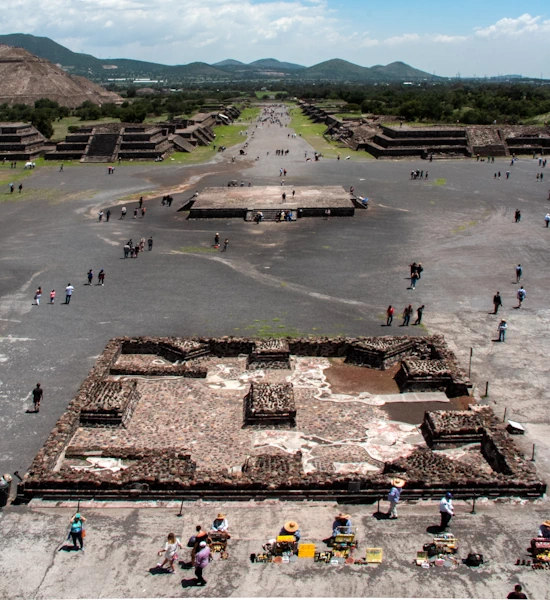The intricate tapestry of human history, woven over centuries, holds stories, mysteries, and connections waiting to be unraveled. Historical, archaeological, and genealogical research are the tools that allow us to delve into the past, uncovering hidden narratives and shedding light on the paths that led us to the present. In this exploration, we embark on a journey through these research fields, understanding their significance, methodologies, and the insights they offer into the human experience.
Historical Research
Definition and Scope
Historical research is the meticulous study of events, people, cultures, and societies of the past. It seeks to understand the causes and consequences of past occurrences, shedding light on the intricate web of human experiences. Researchers dive into primary and secondary sources, analyzing documents, letters, photographs, and other artifacts to reconstruct narratives of bygone eras.
Research Methods
Archival research, oral history interviews, and document analysis are key methodologies in historical research. Historians navigate dusty archives and digital repositories, piecing together fragments of history to unveil a more complete picture. By critically analyzing these sources, historians extract insights, challenge assumptions, and contribute to a more nuanced understanding of the past.

Archaeological Research
Definition and Scope
Archaeological research is a time-traveling endeavor that unearths the remnants of ancient civilizations. By excavating artifacts, structures, and sites, archaeologists decode the material remnants of past societies. The discipline’s focus extends from prehistoric times to recent history, providing a tangible glimpse into how people lived, worked, and interacted.
Research Methods
Stratigraphy, radiocarbon dating, and artifact analysis are integral to archaeological research. Stratigraphy helps establish chronological layers, allowing researchers to discern the sequence of events. Radiocarbon dating assigns numerical ages to organic materials, offering a timeline for artifacts. By meticulously studying artifacts, archaeologists infer cultural practices, trade networks, and societal dynamics.
Genealogical Research
Definition and Scope
Genealogical research, also known as family history research, traces lineages and connections among family members across generations. This deeply personal endeavor not only uncovers names and dates but also reveals the stories, struggles, and triumphs of our ancestors. It fosters a sense of identity and belonging by connecting individuals to their roots.
Research Methods
Genealogists employ a blend of methods, including oral interviews, census records, and DNA testing. Oral interviews capture family narratives and anecdotes, often providing valuable insights not found in official records. Census records offer snapshots of family units over time, while DNA testing helps confirm ancestral origins and familial relationships.
Overlapping Insights
As we delve deeper into historical, archaeological, and genealogical research, we discover instances where these fields intersect. Historical records often validate archaeological findings, while genealogical research can shed light on individuals who played key roles in history. The collaboration of these disciplines paints a more comprehensive picture of the past.
Challenges and Ethical Considerations
Each research field faces its own challenges. Incomplete records, biases, and ethical dilemmas abound in historical, archaeological, and genealogical research. Navigating these hurdles requires a keen awareness of the limitations and complexities inherent in exploring the past. Responsible research practices and sensitivity to diverse perspectives are paramount.
Impact on Society and Identity
The fruits of historical, archaeological, and genealogical research extend beyond academia. They shape collective memory, providing a deeper understanding of cultural heritage and informing decision-making. These research fields foster a sense of identity and pride, as individuals connect with their heritage and acknowledge the diverse narratives that contribute to our shared history.
Future of Research
As technology advances, historical, archaeological, and genealogical research continue to evolve. The integration of data analysis, digital mapping, and interdisciplinary collaboration promises new avenues for exploration. These fields are not static; they adapt and expand as researchers harness innovative tools to uncover more layers of the past.
Semantically Similar FAQs
What is the significance of historical research?
Historical research unveils the complexities of human societies, enabling us to learn from the past and make informed decisions for the future. By understanding historical contexts, we gain insights into patterns, behaviors, and trends that shape our world.
How do archaeologists date ancient artifacts?
Archaeologists employ various dating methods, such as radiocarbon dating and stratigraphy, to assign chronological context to artifacts. These methods provide a temporal framework that helps us comprehend the lifespans and interactions of ancient objects.
What are the benefits of genealogical research?
Genealogical research offers individuals a sense of connection to their heritage, fostering a deeper understanding of family history and identity. It uncovers stories, traditions, and familial relationships that contribute to a rich tapestry of shared experiences.
How do these research fields overlap?
Historical, archaeological, and genealogical research converge in instances where individuals from history intersect with material evidence. By combining insights from these disciplines, we create a more holistic narrative of human history.
What challenges do researchers face in these fields?
Researchers grapple with the scarcity of records, biases in historical accounts, and ethical considerations when dealing with sensitive topics. Each research field requires a nuanced approach to address these challenges responsibly.
How does historical research impact society?
Historical research informs societal decisions, policy-making, and cultural awareness. By understanding the past, we gain insights into the forces that have shaped our world, fostering empathy and encouraging responsible stewardship of our collective heritage.